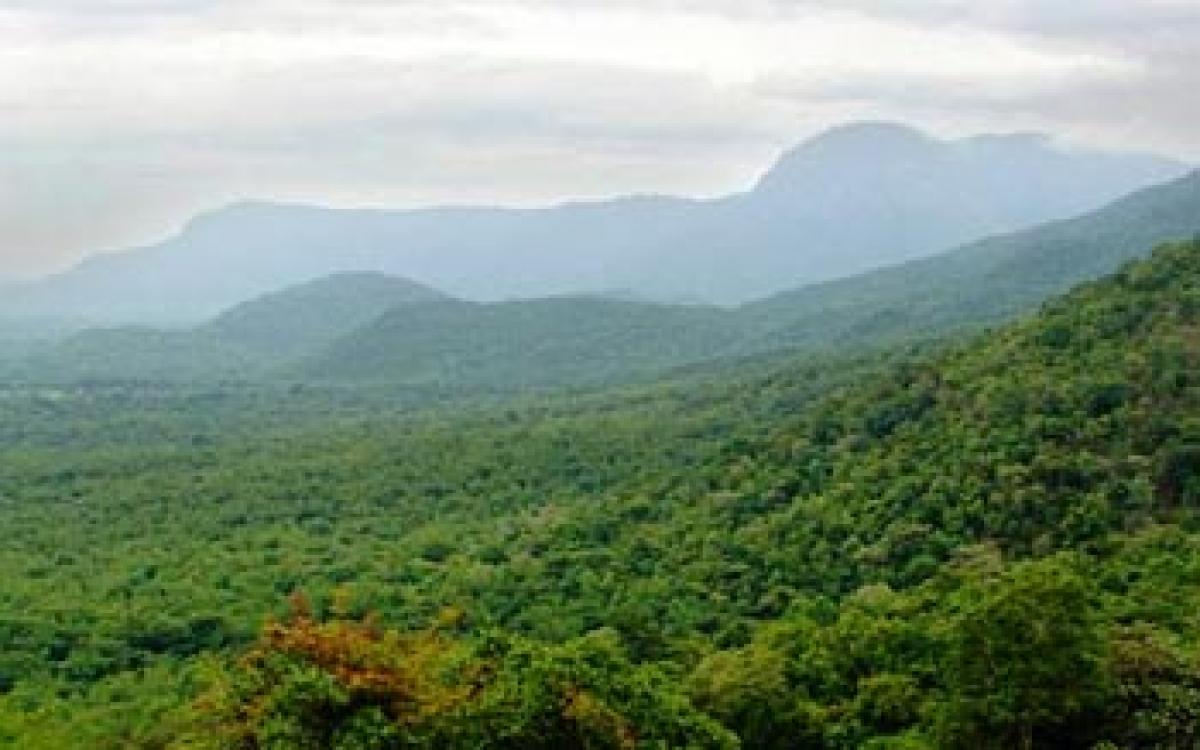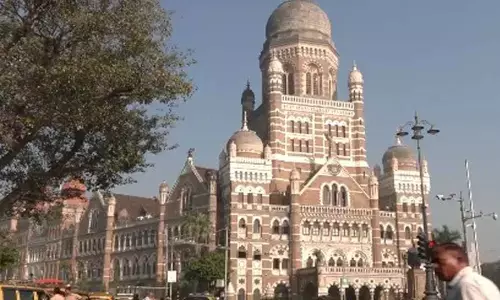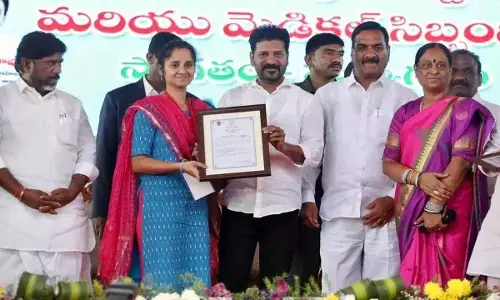Monumental tragedy in the making

The permission to mine green hills of Visakhapatnam Agency area for bauxite ore by the Chandrababu Naidu government has trigger a serious controversy over the community rights of Adivasis over natural resources, their identity and survival versus strong pro-business interests.
 The permission to mine green hills of Visakhapatnam Agency area for bauxite ore by the Chandrababu Naidu government has trigger a serious controversy over the community rights of Adivasis over natural resources, their identity and survival versus strong pro-business interests.
The permission to mine green hills of Visakhapatnam Agency area for bauxite ore by the Chandrababu Naidu government has trigger a serious controversy over the community rights of Adivasis over natural resources, their identity and survival versus strong pro-business interests.
Notwithstanding unequivocal strong opposition of Maoists, political parties (including TDP when it was in opposition) and Adivasi groups, the government issued a GO MS No. 97, permitting AP Mineral Development Corporation to mine bauxite in 1,212 hectares of Chinthapalli and Jarrela Scheduled Areas in Visakhapatnam district.
The permission to bauxite mining is not in accordance with the law of Fifth Scheduled Areas of the State. The Fifth Schedule of the Constitution of India protects the interests of Scheduled Tribes and their livelihoods in the Scheduled Areas.
Although the Supreme Court in Samata case in 1997 only banned the State from transferring its land to private companies for mining under the AP Scheduled Area Land Transfer Regulations (1 of 70), which prohibits transfer of land not only between tribals and non-tribals but also among the non-tribals by interpreting the State as non-tribal for the purpose of the Law, it does not mean that the State can take up mining activity through APMDC transgressing the rights of Adivasis in the Scheduled Areas.
The government move tinkering a ruling of Supreme Court amounts to abrogation of the provisions of 1/70 Regulations as well as the special provision of the Fifth Schedule of the Constitution. As per the historical and legal perspective of 1 of 70 LTR, all land in the Scheduled Areas once belonged to tribals.
Purposefully, the government forgot to read the emphasis of Supreme Court in Samata case which underlines that “the object of the Fifth Schedule and the Land Transfer Regulations is to preserve tribal autonomy and their culture, to help in their economic empowerment, to ensure social, economic and political justice for preservation of peace and good governance in the Scheduled Areas.” The Supreme Court further reinforces in Samata case that “the Constitution of India under Article 21 guarantees ‘Right to life.’ Right to life means far more than mere survival. Thus, STs have the fundamental right to social and economic empowerment”.
Further, to secure the ratification of the Tribal Advisory Council (TAC), a constitutional body, is mandatory under the Fifth Schedule to proceed further in tribal affairs. However the State government purposefully has not yet constituted TAC, paving the way for exploitation of bauxite mining in the Scheduled Areas without any hindrance. Thus the Governor of the State is under constitutional obligation to intervene under Article 244 of the Constitution to stop the proposed mining activity.
The Supreme Court ruling in 2013 in relation to Niyamagiri Bauxite mining case in Odisha clearly establishes the autonomy of Gram Sabha to determine the community and individual rights over the forest landscape under the Forest Rights Recognition Act 2007, which aimed to nullify historic injustice done to Adivasis, and it also became an instrument to scrap the mining proposal.
No mining activity shall be allowed without compliance of the provisions of Forest Rights Recognition Act as per the ruling of Supreme Court. There are about 52 claims covering an extent of 189 acres in bauxite mining affected areas of Chinthapalli and GK Veedhi Mandals in Visakapatnam district under Forest Rights Recognition Act. The individual claimants have to move appeals against rejected claims of 396 covering an extent of 1,294 acres. Thus is it evident that compliance of the provisions of FRA is not yet completed.
The ensured community forest rights of Adivasis under FRA is not yet finalised so far in the proposed mining area.The other landmark constitutional legislation in this context is the Panchayat Extension to Scheduled Areas Act (PESA), 1996, which places pre-eminence on the Gram Sabha to empower on community forest resources, ownership of minor forest produce etc. The consent of Gram Sabha as well as the Mandal Praja Parishad under the Sate Amendment PESA Act is essential to go ahead with the project proposals in the Schedule V Areas of the State.
The State government may also take notice of the Dhebar Commission’s recommendation that “all surrenders (of tribal land) must be only to the State, which should hold the surrendered land as trustee for the tribals.” As such, the State is precluded from taking possession of the land without the owner's consent, the consent being a free and informed one.
The proposed bauxite mining activity will also disturb the "fragile ecological system of the Eastern Ghats,” where several rivulets originate and it would also pollute the river Godavari which is a lifeline for agricultural production in the coastal districts.
The mining policy of the present ruling government will not restrict to excavation of bauxite ore in Chinthapalli and Jarrela regions alone, but is also likely to extend to similar deposits of bauxite ores estimated to be 570 million tonnes located in 25 pockets altogether in both Visakhapatnam and East Godavari districts.
One can estimate the magnitude of destruction of both natural resources and lives of adivasis who depend on such resources. The government should withdraw the GO 97 in the larger interests of Adivasis and maintain the peace in the Scheduled Areas of Visakhapatnam district. (The author is a lawyer and a tribal rights activist)
By Dr Palla Trinadha Rao














